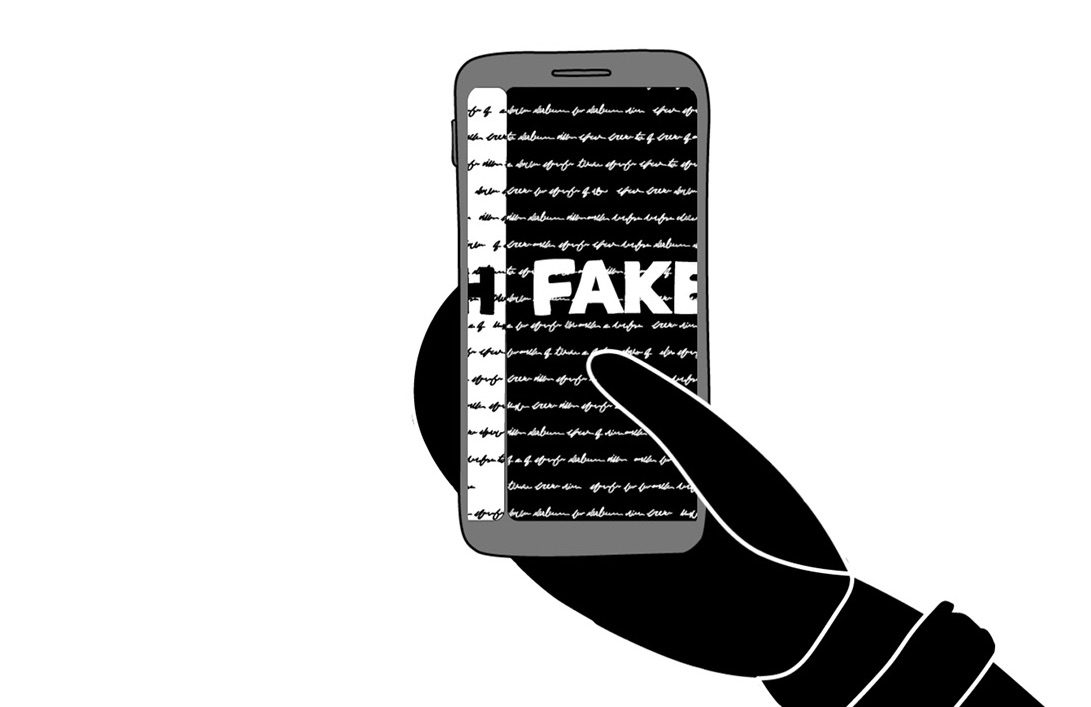
Rise Above:
Countering misinformation and disinformation in the crisis setting
Information Pollution
Information pollution is affecting the citizens’ capacity to make informed decisions. Disinformation, misinformation, and mal-information together with the growth of hate speech and propaganda, especially online, are inciting social divisions and creating mistrust in public institutions. In the past decade, significant resources by international development partners have been invested in tackling this growing global phenomenon that is also negatively affecting social cohesion in the region. Through different and numerous examples of government-led and independent responses to information pollution, societies in the region are showing that they have recognized disinformation to be a serious threat to their countries’ social, political and economic stability.
To raise awareness and understanding of information pollution as an important contributory factor to the growing security threats and development challenges in the Europe and Central Asia region, UNDP's Istanbul Regional Hub in collaboration with UNDP's Oslo Governance Center prepared a regional mapping and analysis report which will inform coherent and effective responses by learning from best practices implemented by various actors.
Definitions:
- Disinformation
Information that is false and deliberately created to harm a person, social group, organization or country. - Misinformation
Information that is false, but not created with the intention of causing harm. - Malinformation
Information that is based on real facts, but manipulated to inflict harm on a person, organization or country. - Hate speech
Hate speech is “any kind of communication in speech, writing or behaviour, that attacks or uses pejorative or discriminatory language about a person or a group based on who they are, in other words, based on their religion, ethnicity, nationality, race, colour, descent, gender or other identity factors. This is often rooted in prejudice, and generates intolerance and hatred and, in certain contexts, can be demeaning and divisive” and even lead to offline harm or violence.
DIS/MIS INFORMATION TRENDS
Political |
- Political Narratives
- Hate Speech
- Gendered Disinformation
External Influence |
- Propaganda
Crisis-driven |
- Covid-19
- Violent Crisis
- Armed Conflict
Report Download
-
This Mapping and Analysis has found that internet and social media usage correspond with the rise of access to alternative news sources in some ECA countries and territories. Accordingly, the manipulation of public opinion through social media has also been identified as an upward trend.
-
Election campaigns were recognized as one of the main flashpoints of disinformation. These campaigns targeted not just political opponents, but also journalists and civil society leaders.
-
Political disinformation is an increasing concern in the region as governments, politicians and political parties, various far-right groups, and foreign powers weaponize narratives and technology to influence politics.
-
Propaganda and counter-propaganda campaigns from abroad often target one or more political actors in a competition over influence in the countries. Some governments in the region are taking actions to counter disinformation from foreign influences.
-
Disinformation online expands significantly during times of political, economic and social grievances. In that way, it contributes to further polarising the public debate, to eroding public trust, to inciting violence and hatred against minorities, women and vulnerable groups and to disrupting democratic and development processes.
-
During violent demonstrations and armed conflicts, civil society leaders and journalists are increasingly being threatened and subjected to disinformation campaigns because of their investigative work, opinions, and reporting.
-
Moreover, times of crises have served as a pretext to further restrict freedom of speech in some countries.
-
This mapping exercise shows there are a plethora of different responses to disinformation in the region. The counter-disinformation ecosystem is diverse not just regionally, but also within countries. Some of the efforts are spearheaded by civil society organizations as in Georgia CSOs are leading some efforts to counter disinformation coming from abroad and from governments. In other countries, the new media, such as the various website and YouTube channels, play a critical role in debunking disinformation emanating from different sources. In some countries where information warfare is a part of an active conflict or tensions, a number of CSOs, media and the government are mobilized in an effort to counter disinformation and misinformation.
-
Civil sector and independent media are the most active players in the fight against information pollution in the region.
-
The media are developing their responses, monitoring and fact-checking platforms. They are also contributing to efforts by implementing reporting ethics and creating self-regulatory policies.
-
Other responses to information include education of the general population, i.e. the consumers of information, through media and information literacy (MIL) educational programmes and projects.
-
Governments and public institutions have also taken action to combat disinformation. Government-organized and supported fact-checking platforms were reported in several countries.
-
Most often, with few exceptions, the means and initiatives they undertake are misused by the authorities to restrict freedom of speech and criticism of government policies.
-
On a positive note, some governments, are piloting inclusive initiatives, in which they are trying to include civil society actors as partners in both the planning and implementation processes.
-
Some responses to countering disinformation are dealing with different challenges such as through engagement on human rights, freedom of information, internet freedom or digital rights, for example. Although associations focused on such themes are not directly engaged in the fight against disinformation, through support for journalists and media, through advocacy and policy and legislative analyses and recommendations, they are providing an added value to the creation of social resilience to information pollution.
Stories from the field
Related content

 Locations
Locations













